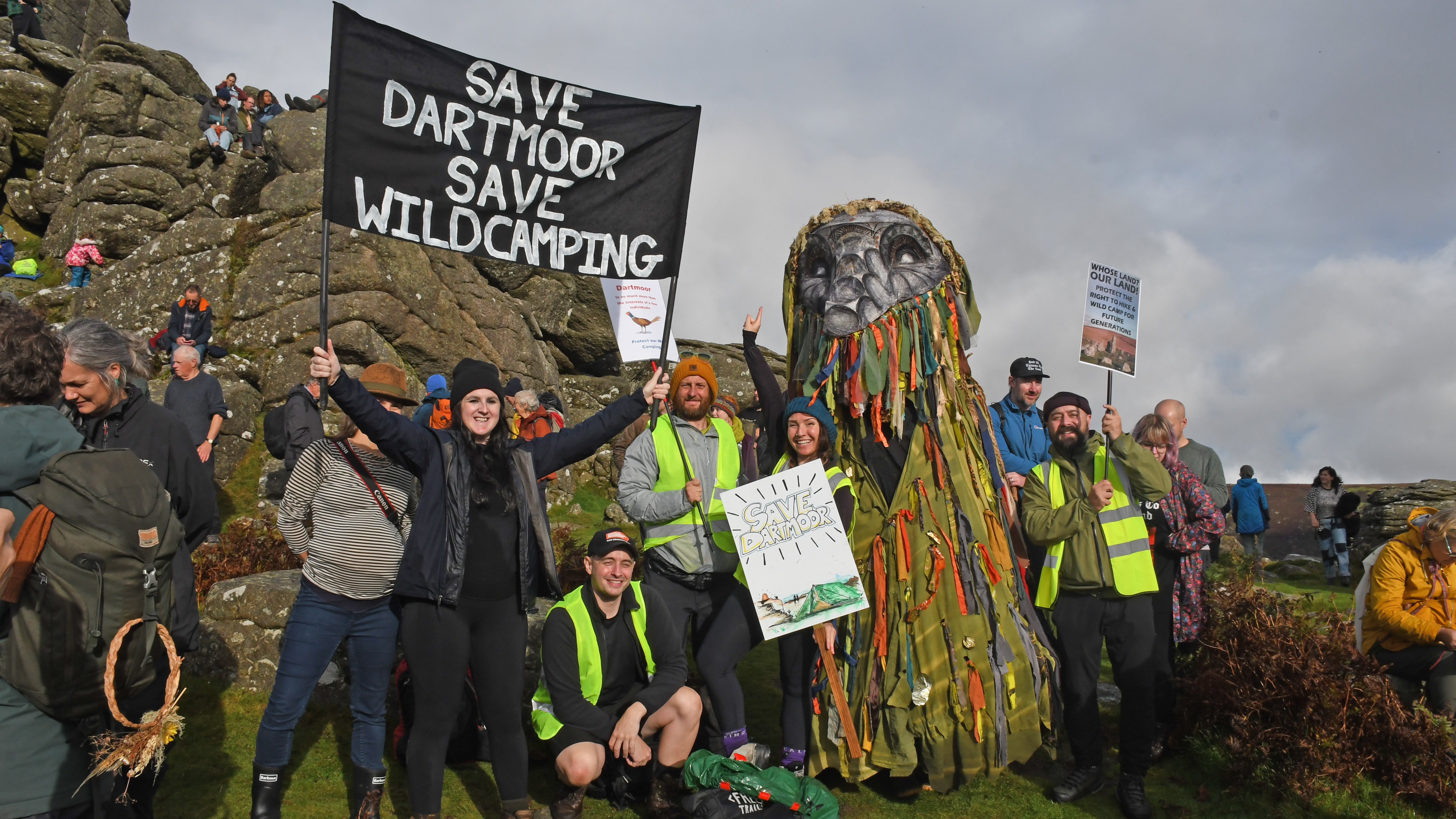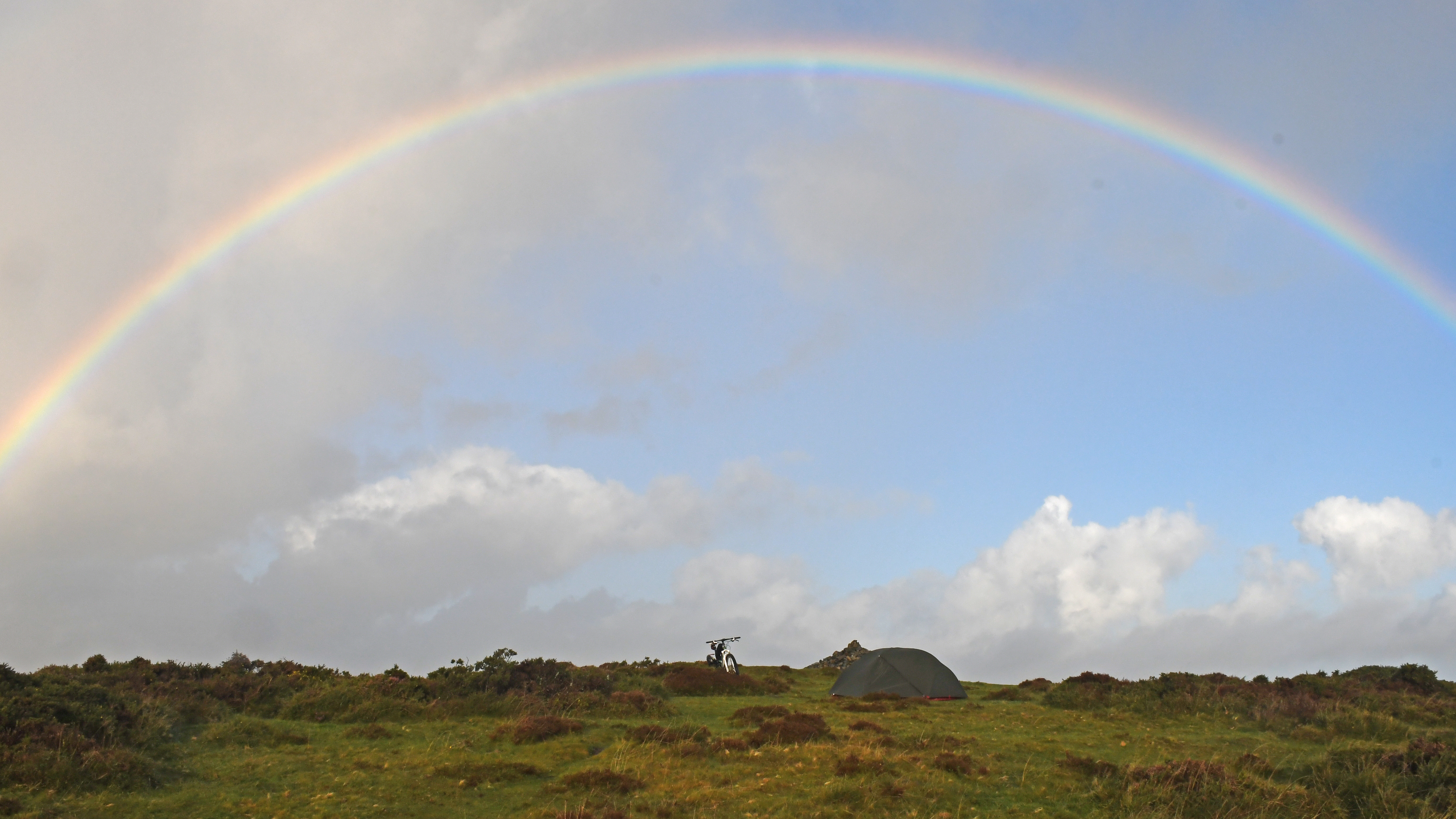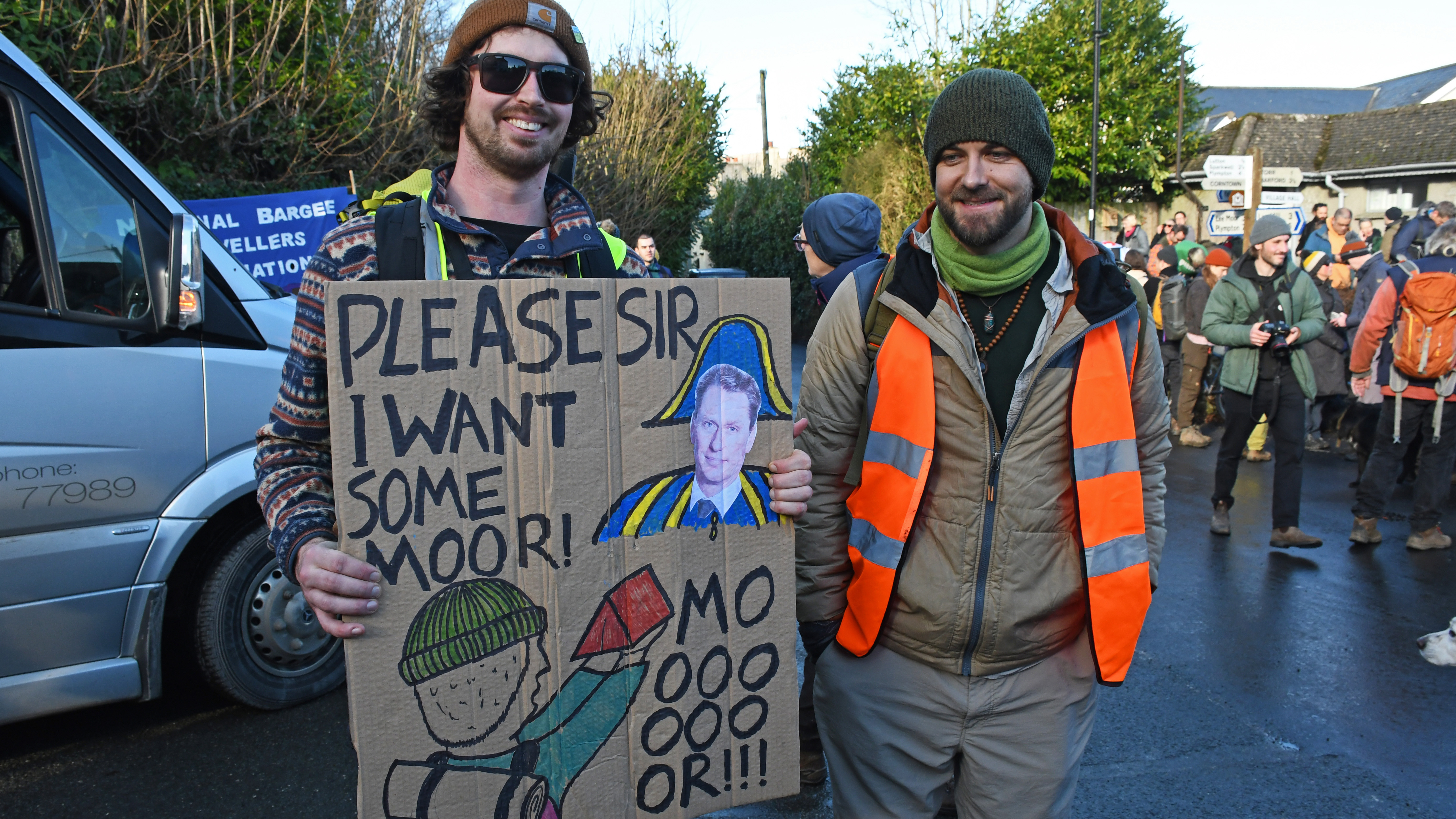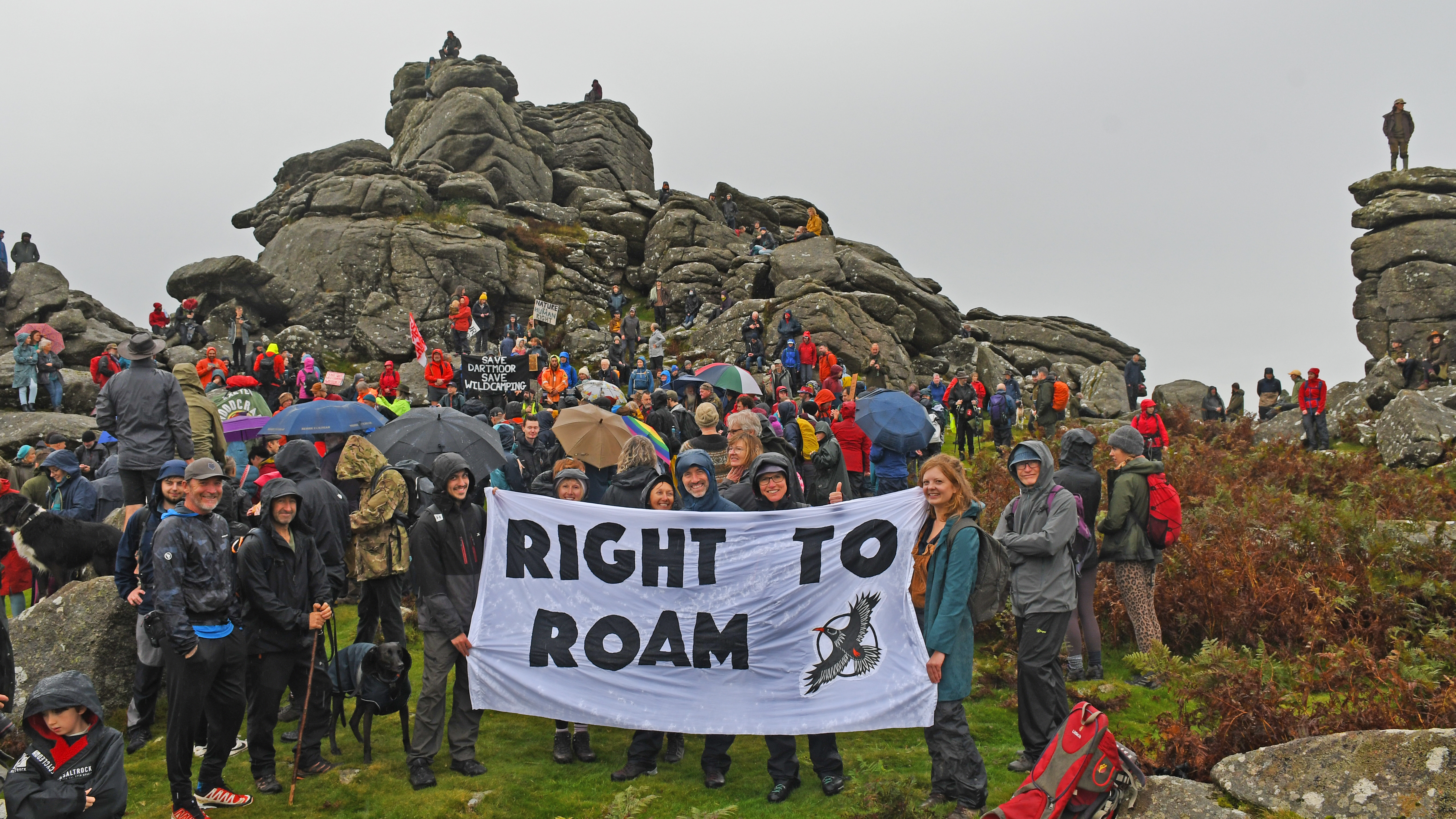
Today, Right to Roam campaigners won their final battle to preserve the long-cherished right to wild camp on Dartmoor.
The Supreme Court threw out an appeal by wealthy landowner Alexander Darwall, who had claimed that laws designed to preserve public access to Dartmoor did not explicitly mention camping and therefore there was no right to pitch up on the historic moor.
Darwall had originally won his case to stop camping on Dartmoor at the High Court in 2022, citing the wording of the Dartmoor Commons Act 1985, but this was overturned by the Court of Appeal the following year. The wealthy hedge fund manager then took his case to the Supreme Court, where it was heard in October last year.
But today, after a nail-biting seven month wait for campaigners, the court dismissed his argument, enshrining access to the moor for generations to come.
The unanimous decision of all five judges was read out by Lord Stephens, who said: "The Supreme Court unanimously dismisses the appeal. The clear wording of section 10(1) [of the Act] shows that it confers a right of public access which includes wild camping.
"This is supported by a wide range of interpretive aids, including other provisions in the 1985 Act and the legislative background. Lord Sales and Lord Stephens give the judgment, with which the other members of the Court agree."
Tonight we will celebrate, but tomorrow we will get on with the wider work of pushing for much better public access to land across the whole country.
Lewis Winks - Right to Roam
"We had prepared ourselves for the worst, but the statement could not have been clearer," an audibly relieved Lewis Winks from the grassroots campaign group Right to Roam told Advnture after the judgement was announced. "The Darwalls' appeal was comprehensively dismissed. It's great news for everyone who loves wild camping.
"But it's also fantastic for everyone who values the outdoors and the countryside. This case has shone a light on the problem at the heart of England's current access model. We have spent two and a half years defending the right to wild camp on the last tiny slither of land where it is still legally allowed. Now we need to concentrate on how to expand this beyond Dartmoor, to other National Parks.
"So tonight we will celebrate, but tomorrow we will get on with the wider work of pushing for much better public access to land across the whole country.
"We need a model here in England and Wales that is more like Scotland's, where there is a presumption of access with sensible exclusions, rather than a presumption of exclusion with extremely rare exceptions. We will be pushing the government to pass a full Right to Roam Act."
On Monday May 26 - a public holiday across England and Wales - a Right to Roam rally will take place on Dartmoor around the iconic granite outcrop atop Haytor, to celebrate the Supreme Court's ruling, the victory of the many in the outdoor community over the vested interest of one wealthy landowner, and the continuation of legal wild camping on the moor.
All are welcome and it's a free event, but buses (£10 return) are being organised to and from Newton Abbot Train station to prevent parking problems. Register your support and intention to attend here.
The court case, which galvanised a national debate about public access to wild areas right across England and Wales, had been running since 2022, when Darwall first launched a legal challenge to remove people’s right to camp wild on the moor.
He had purchased 4,000-acres of Dartmoor in 2011 and uses it to offer exclusive hunting experiences and holiday rentals.
Wild camping is permitted almost everywhere in Scotland, but Dartmoor was the only remaining place in the entirety of England and Wales where people could legally camp for free, so long as they arrive by foot or in the saddle.

The case rested on whether or not wild camping could be considered a "open air recreation", which would make it permitted under the Dartmoor Commons Act 1985. Darwall’s legal team argued that because wild camping wasn't specifically mentioned in the wording of the law it was therefore illegal.
But the judges dismissed this interpretation, saying that it was clear that camping was a form of "open air recreation", and was therefore allowed under the Act.
Darwall had also claimed that wording in the Act that stated access should be on foot or by horseback, meant that those pursuits were allowed, but camping was not. But the judges said that this wording related to how people should access the moor, and didn't limit other outdoor pursuits.
The judges also criticised the original High Court hearing, for not allowing ordinary members of the public to make statements during the case.
When the High Court originally found in favour of Darwall in January 2023, it provoked a spirited response from the outdoor community, who took to the moor in their thousands to protest.
The challenge at the Court of Appeal, spearheaded by the Dartmoor National Park Authority (who are tasked with looking after the moor, and are in favour of wild camping), overturned the original decision in July 2023 and ruled in favour of wild campers.
However, Darwall was granted permission to contest the appeal through the Supreme Court, an action that led to another mass gathering on Dartmoor in October 2024, when people – plus organisations such as The BMC – met at Hound Tor to call for more public access to wild areas.

Speaking yesterday before the ruling was announced, Winks told Advnture: “The bylaws that cover Dartmoor are clear: we have the right to wild camp on the moor. But whether we win or lose this case, we want the government to introduce legislation to protect and improve access rights across the whole country.”
“There are micro enclosures all over the country, where places the public have a long-standing right to explore and enjoy on foot are being surrounded by private land, so access is removed. This affects everyone, from birdwatchers to wild swimmers, and it needs to be challenged.”

The Dartmoor Preservation Association has raised more than £130,000 through its Save Dartmoor Backpack Camping Appeal, to help support the Park Authority fight for people’s right to wild camp. It had pledged to use that money if it won to support educational projects around the National Park.

Just two weeks ago, the famous Ten Tors Challenge took place on Dartmoor, with 2,400 teenagers tracing routes of between 35 and 55 miles, and overnighting on the moor. “It’s experiences like this that teach people how to behave properly in the outdoors,” argued Winks. “It would be a massive backward step if such opportunities were taken away.”
Darwall and his lawyers had attempted to portray wild campers as a threat to the environment, but this was refuted by the Park Authority and robustly denied by outdoor campaigners. “We’re told time and time again that wild campers cause damage, but actually the complete opposite is true,” Winks said. “Wild campers leave no trace. Even better, they report and challenge bad behaviour in wild spaces, and can be a huge force for good in the countryside.
“Recently, a wild camper on Dartmoor reported seeing smoke, and when we visited, we discovered an illegal swaling site, where the landowner had been burning scrub in an area of shallow peat, well beyond where it’s permitted to do so. Dartmoor is an environment that is in trouble, but it’s not wild campers who are to blame.”

Campaigners are now set to gather on Dartmoor on Monday, May 26, to celebrate the victory.
Keep an eye on Right to Roam’s social media for more information.
- Peruse the best budget hiking boots for men and women
- Looking for a lightweight sleeping bag and camping mat?
- A good hiking backpack is the difference between a terrible trip and an epic adventure







